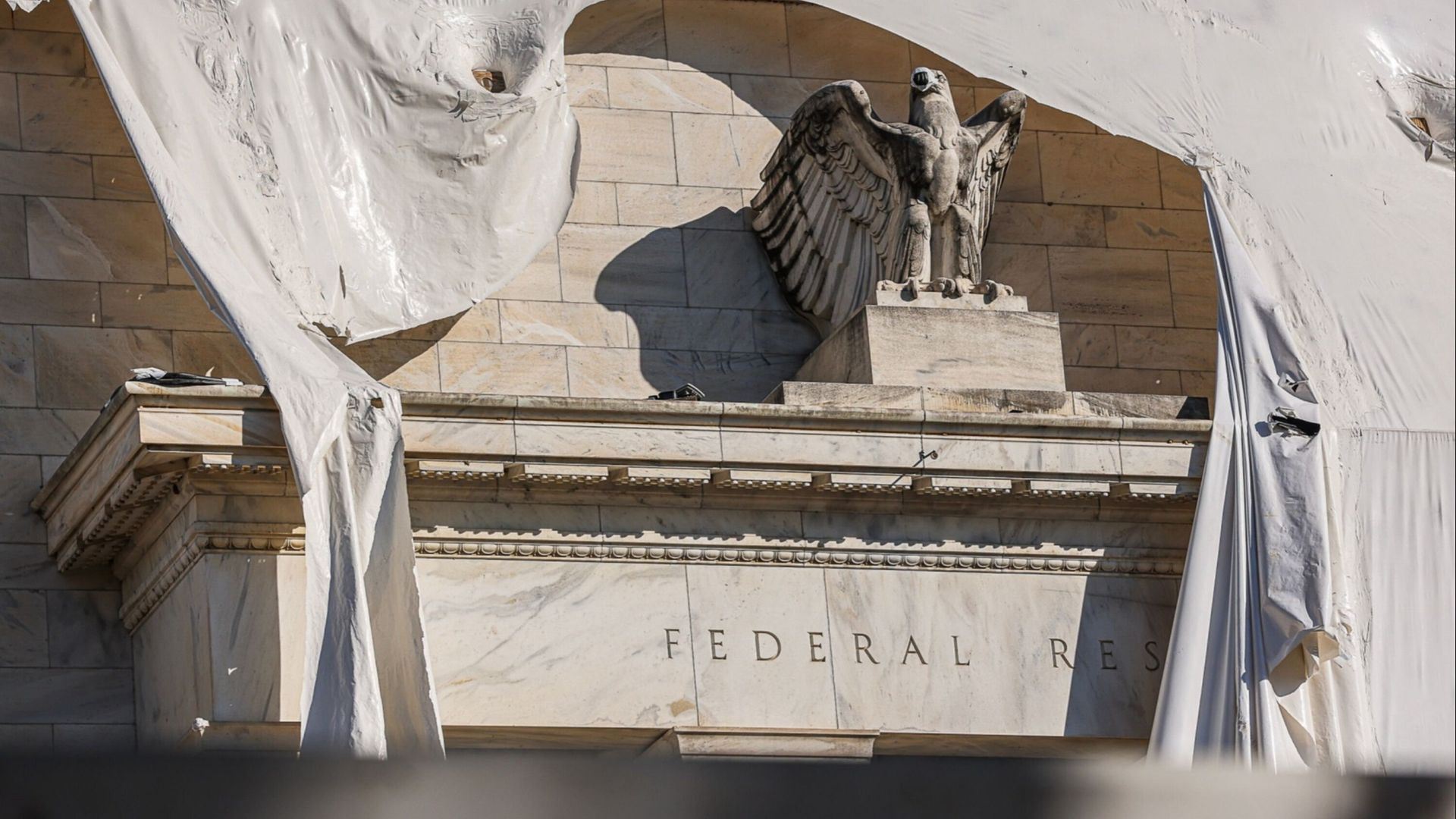尊敬的用戶您好,這是來自FT中文網的溫馨提示:如您對更多FT中文網的內容感興趣,請在蘋果應用商店或谷歌應用市場搜尋「FT中文網」,下載FT中文網的官方應用。
The writer is global chief investment strategist at BlackRock
本文作者是貝萊德(BlackRock)全球首席投資策略師
The investing landscape has fundamentally changed. Some investors may be waiting, or hoping, for a return of the sustained bull markets in both equities and bonds that we enjoyed for the 40 years before the pandemic. But I think we are in a new regime, and we are not going back any time soon. It’s time to stop waiting and start making lemonade from the lemons that the macro environment presents. This is going to take a more nimble approach than it did in the past.
投資環境已經發生了根本性的變化。一些投資者可能正在等待或希望重現我們在疫情爆發前40年裏所享受的股市和債市的持續牛市。但我認爲我們正處於一個新的體制中,而且短期內不會倒退。是時候停止等待,開始從已經變成檸檬的宏觀環境中榨取檸檬汁了。這將需要比過去更靈活的方法。
One reason: the economic outlook is much more uncertain. In the US, market narratives have been swinging between hopes for a soft landing and recession fears through 2023. But context is everything. Despite seemingly strong economic activity recently, the US economy has grown more slowly over the past three years than was typical before the pandemic. There is no landing — we are just climbing out of a hole.
原因之一:經濟前景更加不確定。在美國,整個2023年市場一直在希望經濟軟著陸和擔心經濟衰退之間搖擺不定。但背景決定一切。儘管最近的經濟活動看似強勁,但過去三年美國經濟的成長速度比大流行病發生前要慢得多。沒有什麼著陸可言,我們只是從一個坑裏爬出來。
There is a natural tendency to interpret inflation and growth as though we are in a typical business cycle but we are not. As the global economy normalises from the pandemic, it is being shaped by new forces such as ageing populations, geopolitical fragmentation and the low-carbon transition. We’re in the midst of a massive structural shift that is likely to see major economies move on to lower growth paths amid persistent production constraints. The resulting disconnect between the cyclical narrative and structural reality is stoking market volatility.
人們很自然地傾向於把通膨和經濟成長解讀爲我們正處於一個典型的商業週期,但實際上並非如此。隨著全球經濟從疫情中恢復正常,它正在受到人口老齡化、地緣政治碎片化和低碳轉型等新力量的影響。我們正處於大規模的結構性轉變之中,主要經濟體可能會在生產持續受限的情況下轉向更低的成長路徑。由此導致的週期性敘述與結構性現實之間的脫節,正在加劇市場波動。
While major central banks could start cutting interest rates from the middle of next year, they won’t be going all the way back down to pre-pandemic levels. The US Federal Reserve will have to hold back growth to align with constrained production capacity, especially in the face of looser fiscal policy. Higher rates are here to stay.
雖然主要央行可能從明年年中開始降息,但它們不會一直降到大流行前的水準。美聯準將不得不抑制經濟成長,以配合有限的生產力,尤其是在財政政策更加寬鬆的情況下。高利率將持續下去。
So, investors will have to learn once more how to outrun cash yielding around 5 per cent. Structurally higher policy rates should eventually mean higher returns on assets. But not all asset valuations have adjusted, in my view.
因此,投資者將不得不再次學習如何超越收益率在5%左右的現金。從結構性上講,更高的政策利率最終應該意味著更高的資產回報率。但在我看來,並非所有資產估值都已調整。
As markets adjust in fits and starts to this new reality, we can expect to see greater dispersion of returns. For example. London Stock Exchange Group data shows that during the period of economic stability preceding the pandemic known as the Great Moderation, analyst views of expected company earnings were much more grouped together outside major shocks. Now they are more dispersed, showing that an environment of higher inflation and interest rates makes the outlook harder to read.
隨著市場逐漸適應這一新的現實,我們可以預期收益會更加分散。舉例來說。倫敦證券交易所集團的數據顯示,在被稱爲「大穩健」的大流行病之前的經濟穩定時期,分析師對公司預期收益的看法更多地集中在重大沖擊之外。而現在則更加分散,這表明在通膨和利率上升的環境下,前景更加難以預測。
Seizing the opportunities from this trend requires being dynamic with portfolios, not relying on static exposure to broad asset classes that worked so well during the sustained bull markets of the past. In fact, our analysis suggests heightened volatility and greater dispersion of returns means that moving portfolios around more frequently in the new regime can be better rewarded than in the years leading up to the pandemic, while a set-and-forget approach worked better in the old regime.
要想從這一趨勢中抓住機會,就需要對投資組合進行動態調整,而不是依賴於在過去持續牛市中表現良好的廣泛資產類別的靜態敞口。事實上,我們的分析表明,波動性加劇和回報更分散意味著,在新制度下,更頻繁地調動投資組合比在大流行前的幾年能獲得更好的回報,而在舊體制下,「買後即忘」的方法效果更好。
That’s the theory. How am I putting it into practice? We’ve been changing our asset allocation more frequently. One example: we’ve shifted our tactical view on US Treasuries to capitalise on the current heightened rate volatility. We were underweight long-term Treasuries from late 2020 as we expected higher interest rates and a more positive “term premium” — the extra returns for investors for the risks of longer-dated debt.
理論就是這些。我如何把它付諸實踐?我們一直在更頻繁地改變資產配置。舉個例子:我們已經改變了對美國國債的戰術觀點,以利用當前利率波動加劇的機會。我們從2020年末開始減持長期美國國債,因爲我們預計利率將走高,「期限溢價」將更爲積極——即投資者從長期債務的風險中獲得的額外回報。
We turned upgraded to a neutral stance a couple of months ago as risks have become more two-directional. We then also turned overweight on European government bonds and UK gilts but have since trimmed that position given the drop in yields. This more dynamic approach stands in sharp contrast to the previous long-held underweight position in developed market long-term bonds.
幾個月前,由於風險變得更加雙向,我們將評級上調爲中性。隨後,我們也對歐洲政府債券和英國金邊債券持增持態度,但鑑於收益率下降,我們又減持了這一頭寸。這種更具活力的策略與之前長期持有的發達市場長期債券低配倉位形成了鮮明對比。
Within US equities, the macro assessment leads us to take a broad underweight position compared with portfolio benchmarks, but this is offset by the potential in artificial intelligence and technology stocks, taking us closer to a neutral stance.
在美國股票方面,與投資組合基準相比,宏觀評估導致我們採取廣泛的低配倉位,但這被人工智慧和科技股的潛力所抵消,使我們更接近中性立場。
In addition to the tech sector more generally, we favour industrials, selective European banks and US healthcare in portfolio allocations. We upgraded Japan equities twice this year and continue to like them for 2024 but on a currency-unhedged basis. Within emerging markets, we favour India and Mexico as beneficiaries of companies diversifying supply chains and beneficial demographic trends.
我們的投資組合配置除了整體上更偏好科技股外,還看好工業股、部分歐洲銀行股和美國醫療保健股。我們今年兩次上調日本股票評級,並在2024年繼續看好日本股票,但基於非對沖貨幣基礎。在新興市場中,我們看好印度和墨西哥,因爲它們受益於企業供應鏈多元化和有利的人口趨勢。
We are in a new regime — and not going back any time soon. This is a world in which rewards are up for grabs for investors that can navigate the structural shift to higher interest rates, more volatility and greater dispersion.
我們正處於一個新的體制中——而且不會在短期內倒退。在這個世界上,如果投資者能夠駕馭向更高利率、更大波動性和更大分散性的結構性轉變,就能獲得回報。

